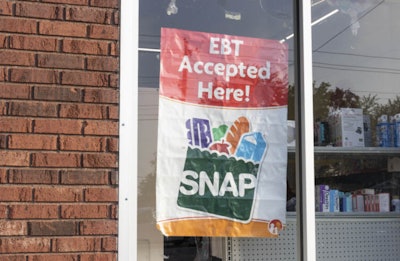
As it stands now, most students seeking SNAP benefits – also known as food stamps – must participate in a work-study program or work off-campus at least 20 hours per week. The proposed bill – introduced by Sen. Anthony Bucco eliminates the 20-hour work requirement for college students who receive an award from the New Jersey Educational Opportunity Fund (EOF).
The EOF financially assists and supports students from educationally and economically disadvantaged backgrounds.
29% of students at four-year universities are food insecure and students of color are disproportionately impacted, according to a 2020 study by the Hope Center for College, Community, and Justice at Temple University.
The bill has cleared the New Jersey Senate Health and Human Services Committee but has yet to be scheduled a hearing in The General Assembly Human Services Committee.
Zaniya Lewis, a student at Rutgers Law school, said the bill should go farther.
“I believe the bill should include all financial aid recipients, need-based recipients, and federal and state-work study recipients. It is important to note that financial aid packages vary depending on the student,” Lewis said. “For example, a work-study recipient may not be eligible for the New Jersey Educational Opportunity Fund. At the same time, a student that is a recipient of the New Jersey Educational Opportunity Fund may not be able to find a work-study job, preventing that student from working the 20 weekly hours to be eligible for SNAP benefits.”
Lewis said: “Other financial aid practices may reduce a student’s eligibility to become a recipient of the New Jersey Educational Opportunity Fund and/or work-study program, [for example] scholarship award displacement or federal over-awarding policy.”
Stockton University senior Sillon Williams said that the bill should emphasize independence more.
“Make it more available…because a lot of college students, like myself…have to qualify through [our] parents,” Williams said. “So I guess make it more independent for college students to apply on their own, without their parents needing to cosign… because a lot of times…you’re still dependent on your parents in terms of taxes, but they’re not helping you in paying for yourself while you get to college.”
















